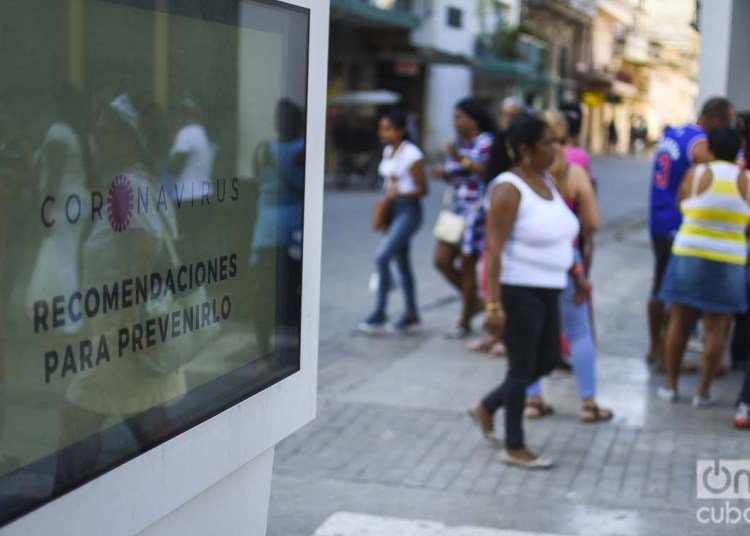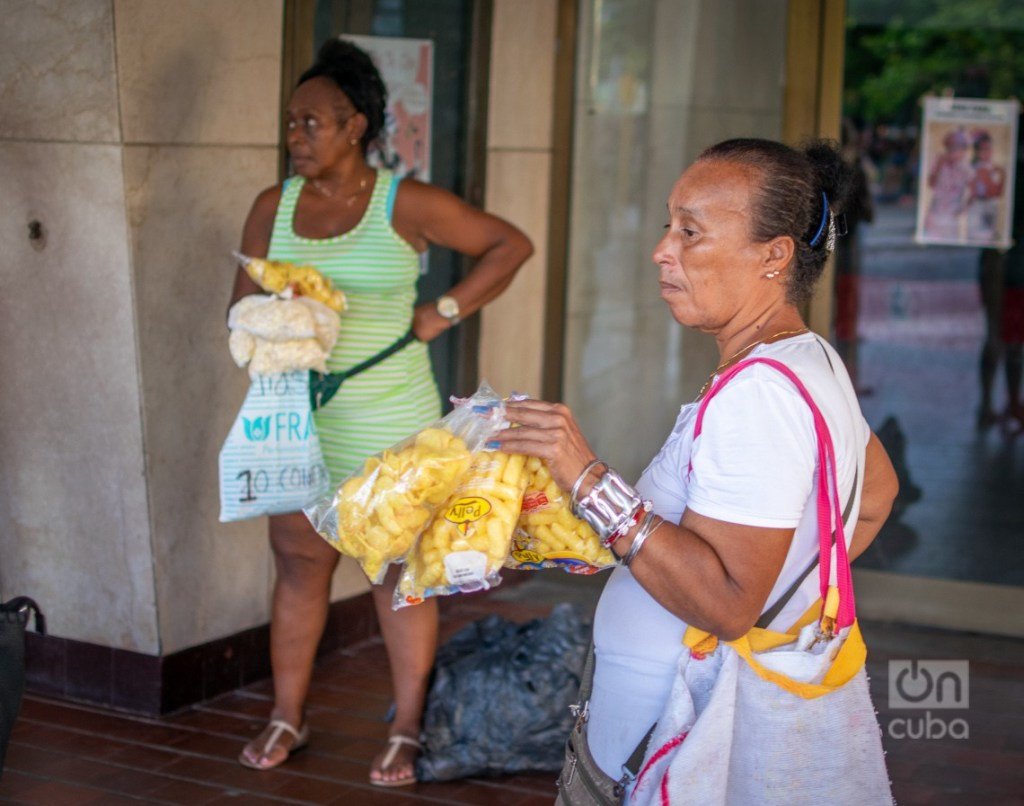Caregiving. That is the most recurrent word in these days of COVID-19. The whole world is saying the same thing at the same time: take care, cuídate, prendre soin, pass auf dich auf, abbi cura di te, 保重, cuide-se…and so on.
My mother repeats to me: take good care of yourself, please; and I return the phrase. I ask my friends on the PC screen: who is caring for the child today, what are you going to do? My elderly neighbor says to me three meters away: take care when you go out and bring me a lettuce if you see any. Another friend who lives far from Cuba wonders who will take care of her mother now that she is no longer here.
On social networks: take care of the elderly, the grandmothers. Altogether we remind and request: the health personnel take care of us, let’s also take care of them, #StayAtHome. That the borders be closed, that the schools be closed, that the State take care of us, we demand.
Taking care, taking care of oneself, that we be taken care of. But who takes care, where and how do we take care.
The #StayAtHome in our home
What is asked of us and what we ask most insistently is to stay home. In this way we contribute to breaking the chain of contagion, we protect ourselves and our families and others. Now the insurgent and solidary thing is to remain in the private space. In doing so, we take care.
But much of the time the house is not a space of mutual care. Caring for others in the home is something that women do, above all―we are also supposed to do it.
On a global average, we take care of more than three-quarters of the domestic and caregiving work in our homes. This is also the case in Cuba. We are the ones who take care when there is no coronavirus: cooking and planning what to eat, washing, cleaning, shopping for food, ironing, preparing children’s snack, helping them with their homework, supervising their free time, going to meetings in schools, giving emotional support, going to the pharmacy, accompanying hospitalized persons, assisting relatives with deteriorated health (physical or mental), keeping in touch with the family that doesn’t live with us, and the list could go on.
If caring is not subjected to criticism and is redistributed―between men and women, families and the State, those who work and their employers―what “naturally” happens is that it becomes a difficult burden to carry.
When the quarantine is declared and the schools are closed, the #StayAtHome generates important challenges because: who will take care of the children who are unable to look after themselves?
If family members have to keep going to their paid jobs, it is women who mostly have to ask for a leave of absence (in case they have formal work and rights) or lose their jobs.
According to statements from the Ministry of Labor and Social Security, in the state sector, leaves of absence for personal reasons associated with the emergency will be guaranteed 100% of salary the first month and 60% the rest of the months until the crisis ends. On the other hand, those who have formal jobs in the private sector must receive, at least, the country’s minimum wage (which is much less than the usual remuneration in that sector). And those without a formal contract are likely to lose their job without compensation.
Although the above are protective measures and it is probable that in the national economic situation much more cannot be done, it is necessary to warn that this will differentially affect women. It is they who will apply for these leaves or abandon their state or private jobs. Consequently, we will not have the same situation as the rest. And that must be considered by post-crisis measures.
Another option is to work from home if it is compatible with work activity. But doing distance paid work, helping children with their homework and doing housework is atrocious when the order of things remains unchanged and women continue to be the main caregivers.
“It is unsustainable, suddenly you are four different things at the same time and in the same space: worker, your child’s teacher, mother and housewife,” says a friend who lives in another country in Latin America. “I have the two girls sitting next to me doing homework, which they never finish. I can’t do more,” says another, from Spain, who lives with the girls’ father but is the one who takes care of them. “I’m going crazy and it’s only been two days,” a feature article on the situation reports.
Something similar happens regarding the care of the elderly. Taking into account the vulnerability of this population in the face of the COVID-19, the care multiplies and also the difficulty to ensure it. In Cuba, a person aged 60 or over lives at least in 40% of households. In these circumstances, their protection is a priority. And this takes a greater effort combined with the permanent situation of scarcity.
At the same time, caregivers are more exposed to contagion because they are the ones who interact most directly with dependent persons at home. Spokespersons from the countries most affected by the pandemic have warned of this, and so has the Secretary General of the World Health Organization: those who provide care must take special protection, sleep in a separate room, and have biosafety resources, etc. But in the real conditions of the vast majority of families, this is a very difficult scenario to ensure.
Staying at home is a major challenge in families living in overcrowded conditions. By increasing the permanence at home of all the people living together, the family dynamics change and it is time to redefine pacts, roles, limits, times. The result may be detrimental to some. During the quarantine, cases of violence against women in the home skyrocketed in China and the same happened in Italy, France, and Korea. This has been pointed out by UN Women. In areas of Spain, during the quarantine, there has been a decrease in all criminal acts, except for gender-based violence. It is not uncommon for this to happen in crisis situations, when people are exposed to sudden changes and feel fear, helplessness or their usual resources are disrupted. In Cuba, with violence indices in couples similar to the world average, it could also happen.
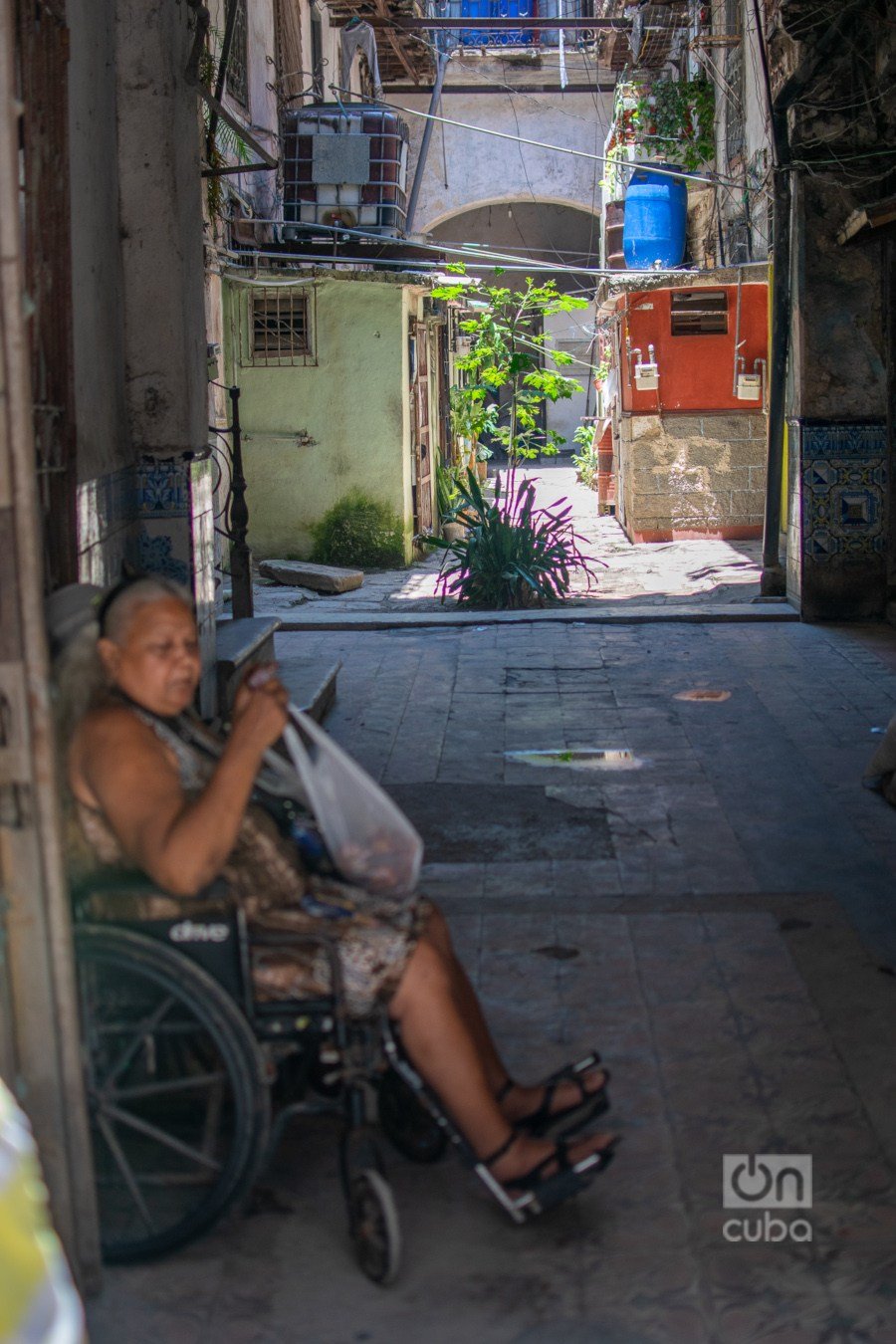
At home, but without care
With the COVID-19 we are also faced with the need to ensure care for the elderly living alone. Eventually they could stay at home, but when their mobility is restricted, they cannot organize their lives and their care is limited. Scarce resources exacerbate the situation.
Of the country’s elderly population, 15% lives alone. The deputy minister of labor and social security directed social workers to pay priority attention to these homes, offer information to elderly women about the epidemiological situation and the prevention of the virus, and to identify their needs and solutions.
This institutional orientation is extremely valuable and necessary. The challenge is to get it done quickly. Social assistance programs usually involve long and complex bureaucratic processes, and the income they provide is minimal and insufficient for basic expenses. In these epidemiological conditions and as this group is the most vulnerable, these people’s difficulties to ensure their lives will increase. Institutional support must be firm, especially for those who do not live with their families and cannot go through the established bureaucratic channels. If extraordinary measures are not taken in practice, these groups will be, de facto, helpless.
Civil society initiatives can be complementary and powerful. In some countries, collective alternatives are being tested to support care: secure common resources, produce solidarity organization where groups of less vulnerable people look for provisions so that our elderly don’t go out, logistical support for caregivers of the elderly and minors, emotional support as well for them and redistribution of household chores among all its members, men and women.
In Cuba, beyond neighborhood solidarity, collective initiatives are starting to appear to support the groups most at risk. The AfroAtenas community project in the province of Matanzas started preparing modules of cleaning products and literature to distribute to people in vulnerable situations. The Church of the Cuban metropolitan community organizes work teams to accompany the elderly. The Akokan project that operates in the Havana neighborhood of Los Pocitos developed a contingency action plan. And young people from different parts of the country are organizing through Instagram and WhatsApp to create a network of accompaniment and “sponsorship” of elderly persons who live alone. Multiplying those actions is a way of caring from the collective.
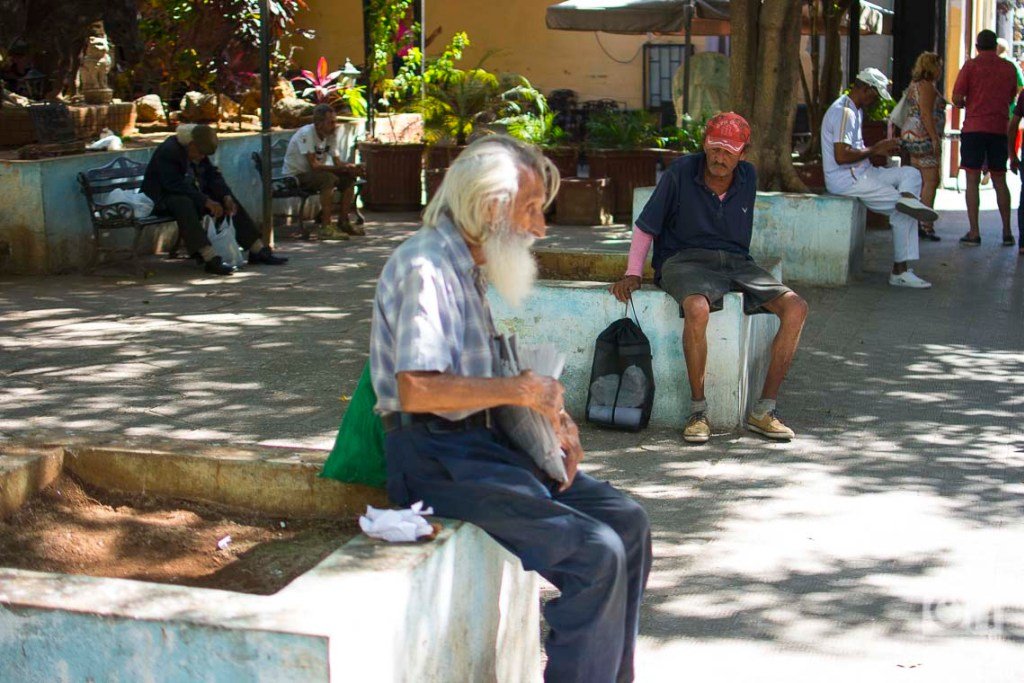
Homeless and with no care
Another group is particularly exposed in this crisis: the homeless. They have no home to stay and no one to care for them.
In several European countries they have opened premises and institutions for their assistance, hygiene, food and to stay there. In Latin America there is also a record of these efforts. In no case have these measures been implemented quickly. We must actively observe how they are implemented and analyze whether they are covering the universe of those who need it.
The number of people who live in these conditions is unknown. There are some national estimates. In Chile, for example, they are estimated to be around 20,000, but they are probably more.
In Cuba the official number is low and it must be taken with caution because it is likely to be higher. The 2012 census reported that 1,108 people lived on the streets. Of these, 467 were 60 and older. Today they are surely more. For them the recommendation of #StayAtHome does not function. They are homeless. They are more exposed and need responsible attention and care. Collective, institutional and non-institutional efforts are essential to care for them.
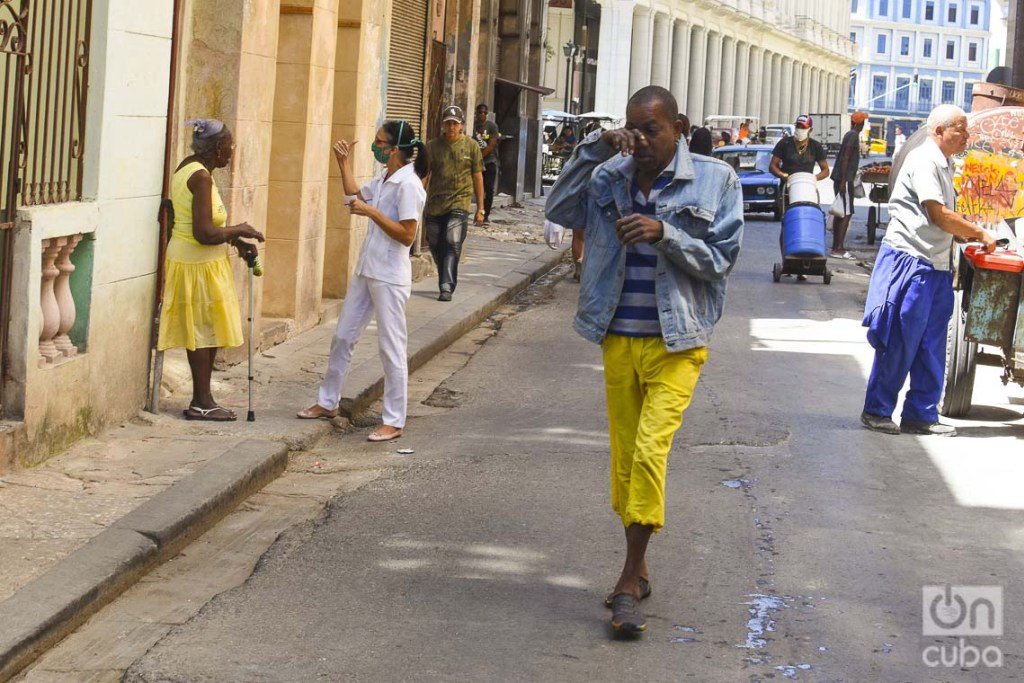
Caregiving during COVID-19…but outside the home
During the crisis associated with the coronavirus pandemic, care is also exercised outside the home. It is not an option for medical personnel to be absent from health, hospital or diagnostic institutions, or not to do the essential screenings.
Those who work there and take care of all of us must be taken care of. They have a high exposure to contagion and to levels of psychological pressure. An important number are women because, remember, they are over-represented in the health sector. In Cuba, they are 64.2% of the total workers in this field.
Those heroes and heroines of the pandemic need community, family and institutional support. How do we organize ourselves as a country and as citizens to ensure it?
Take care, being taken care of, taking care of ourselves. It could be the moment, from the center of the catastrophe, to think about a new ethic of care and not in an epic one where some do and others don’t. A collective, solidary, institutional and socially responsible ethic, fairer, more dignified. An ethic of the “citizenry.”

